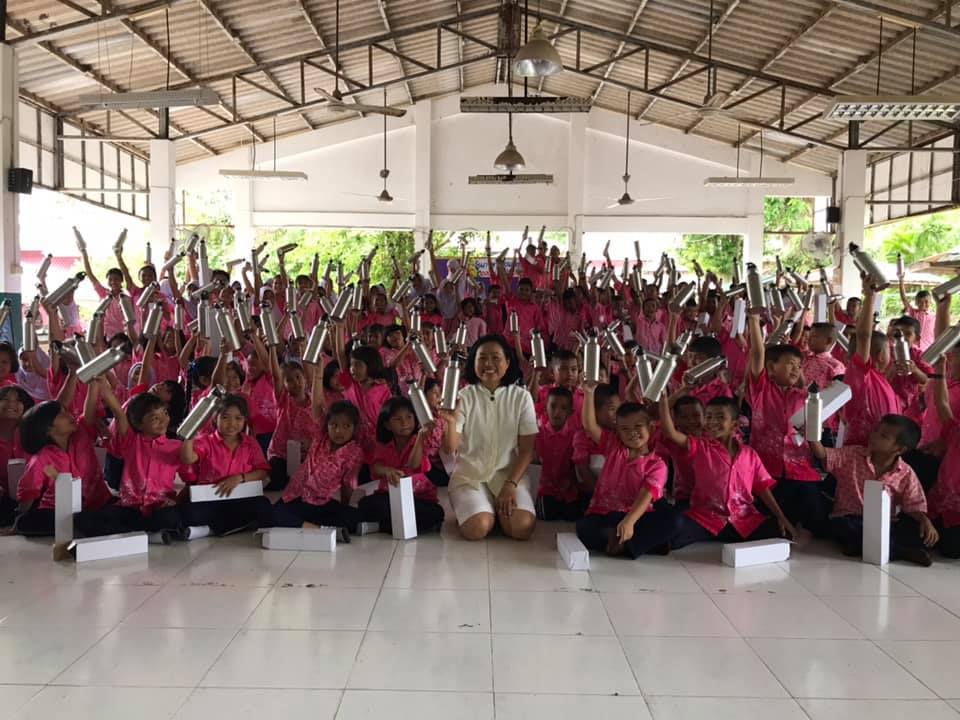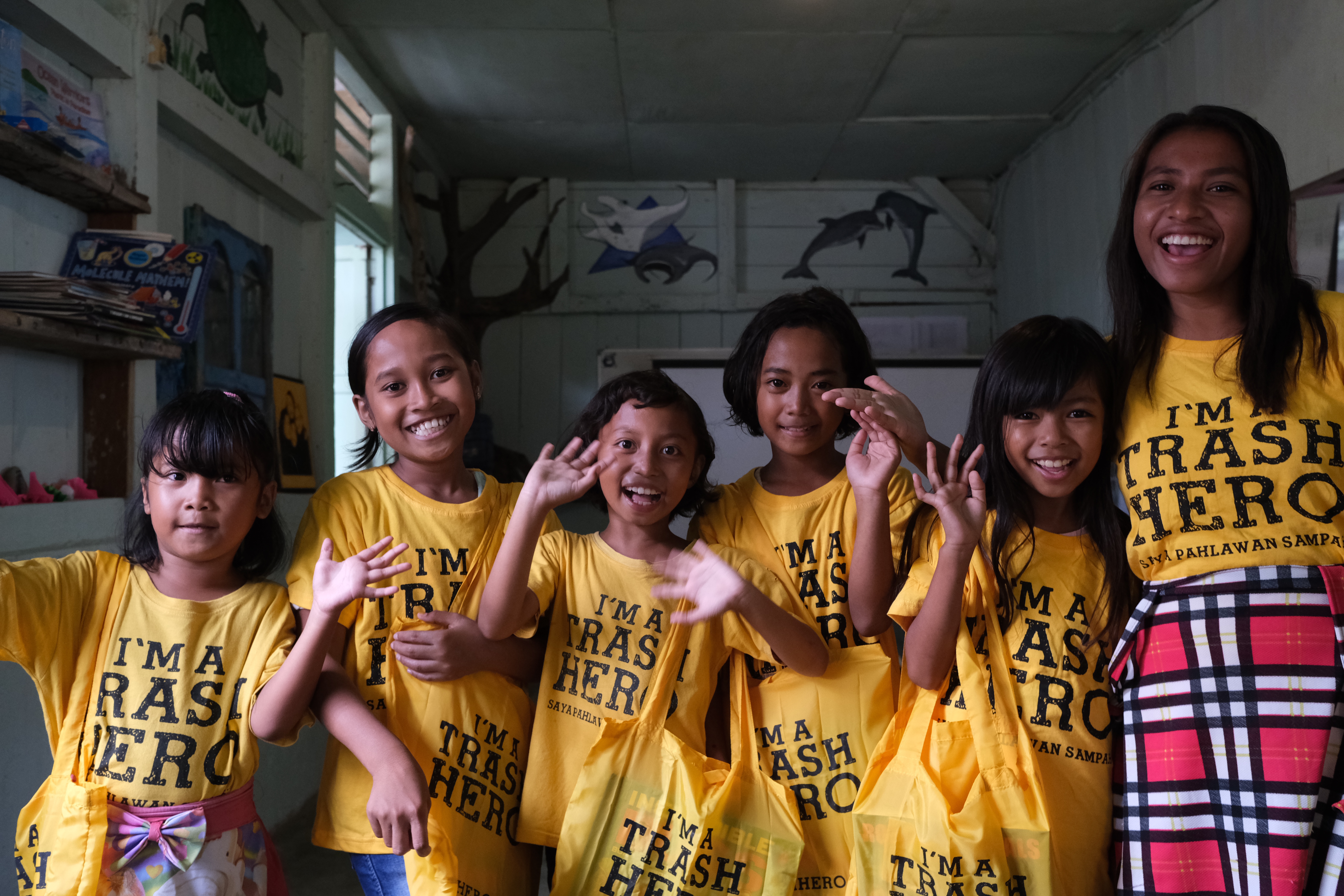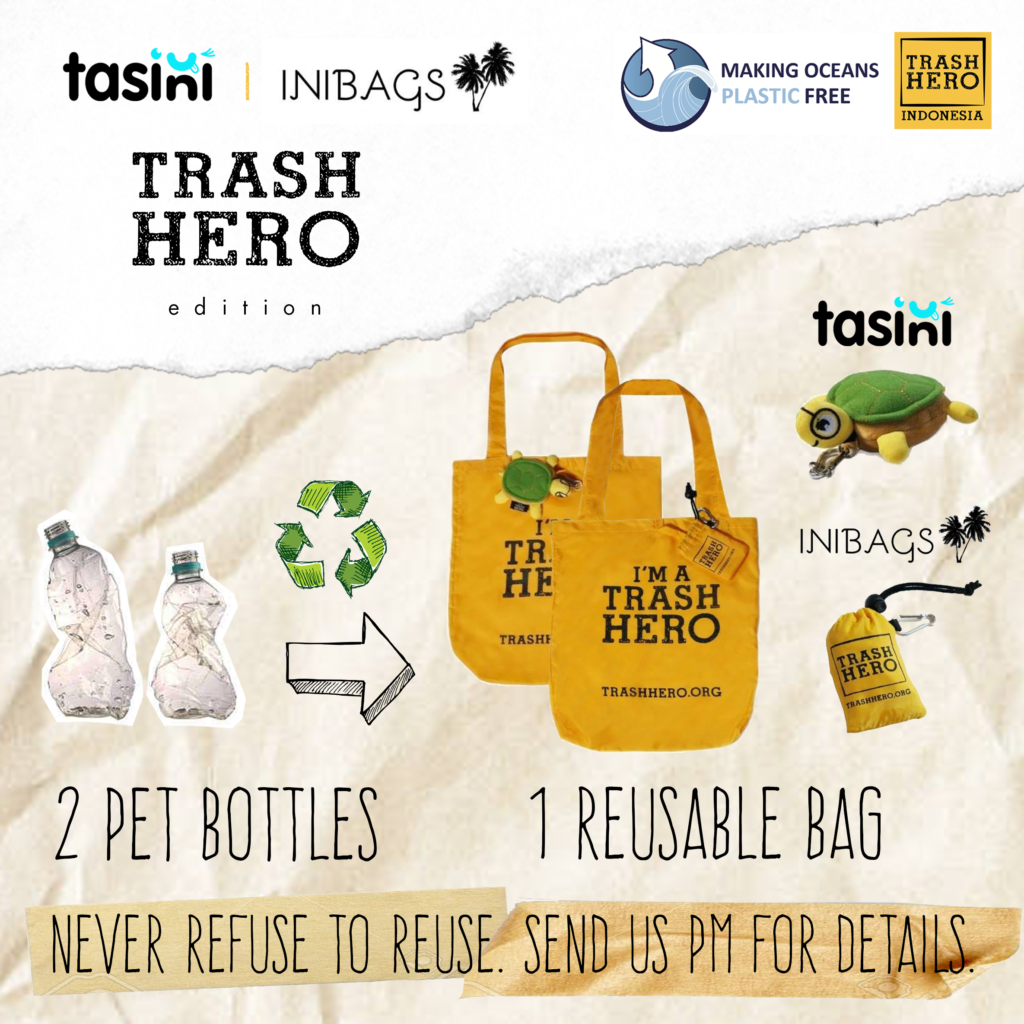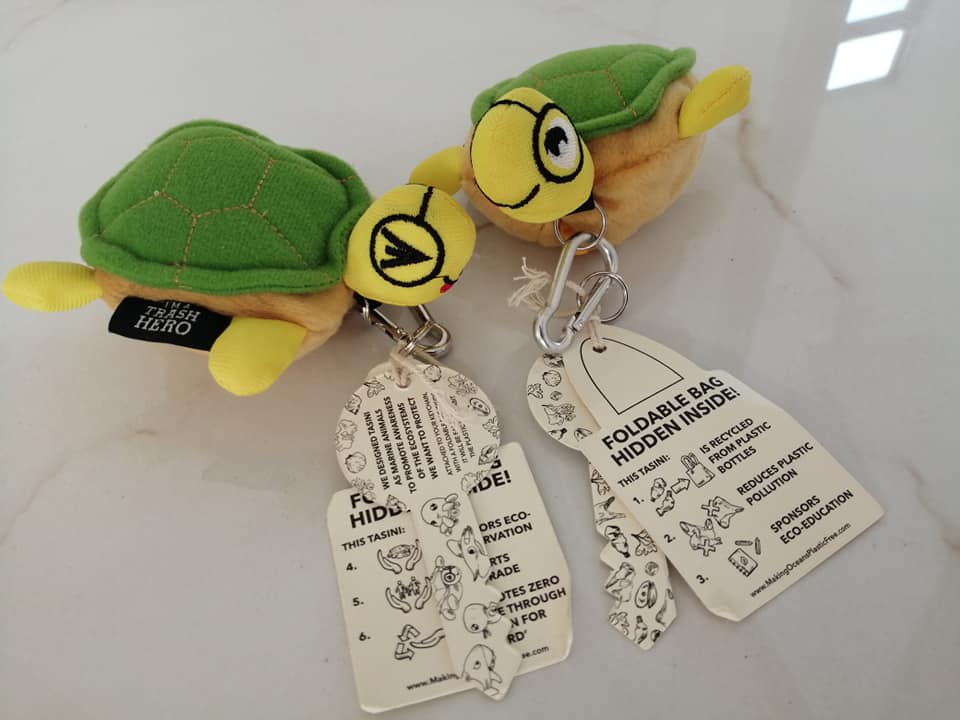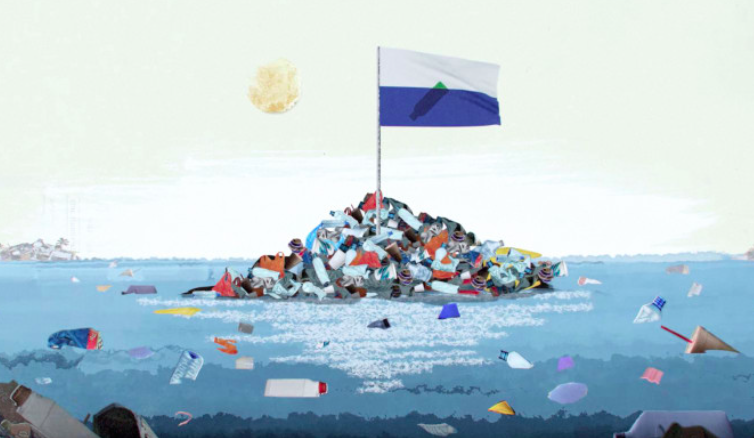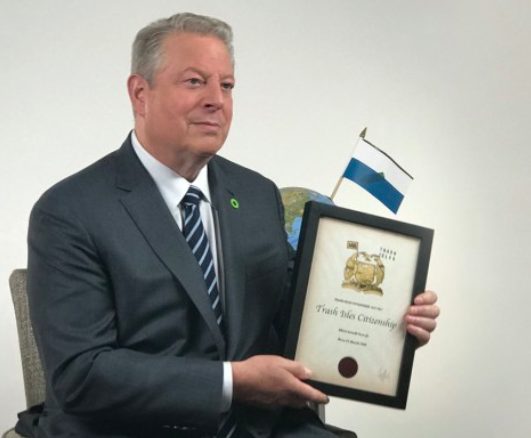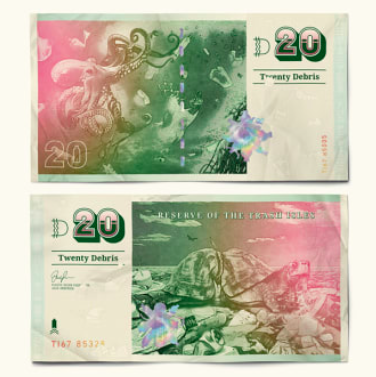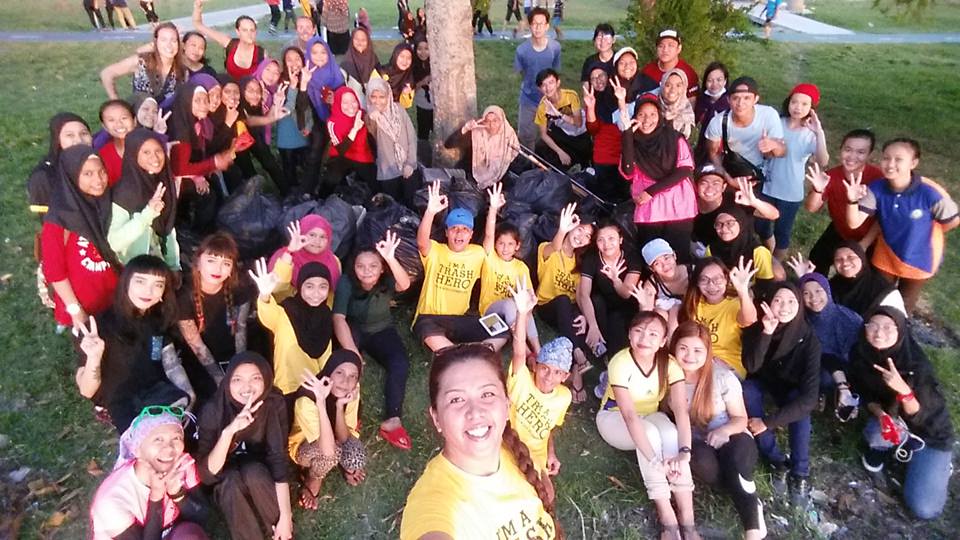Our half-year numbers are in!
Our half-year numbers are in, and they make us so proud of every single volunteer who has contributed to the impact of the global Trash Hero movement – whether they joined one cleanup or 100!
In just six months in 2022, 26,666 volunteers (of which 8,098 were under 16) completed 1615 cleanups, collecting 53,102 kg of trash.
That’s an average of 9 cleanups and 265 kg of trash per day!
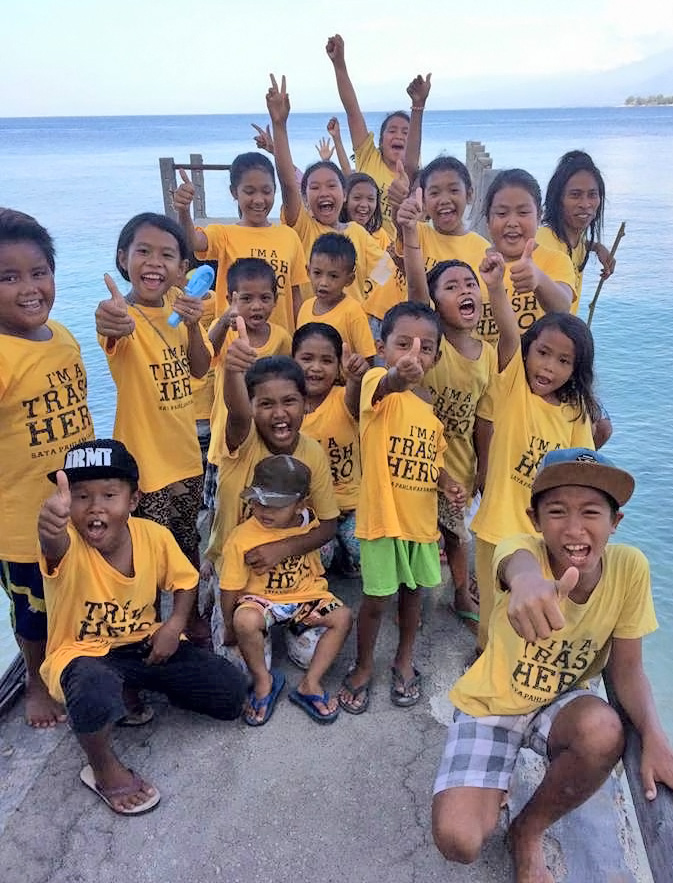
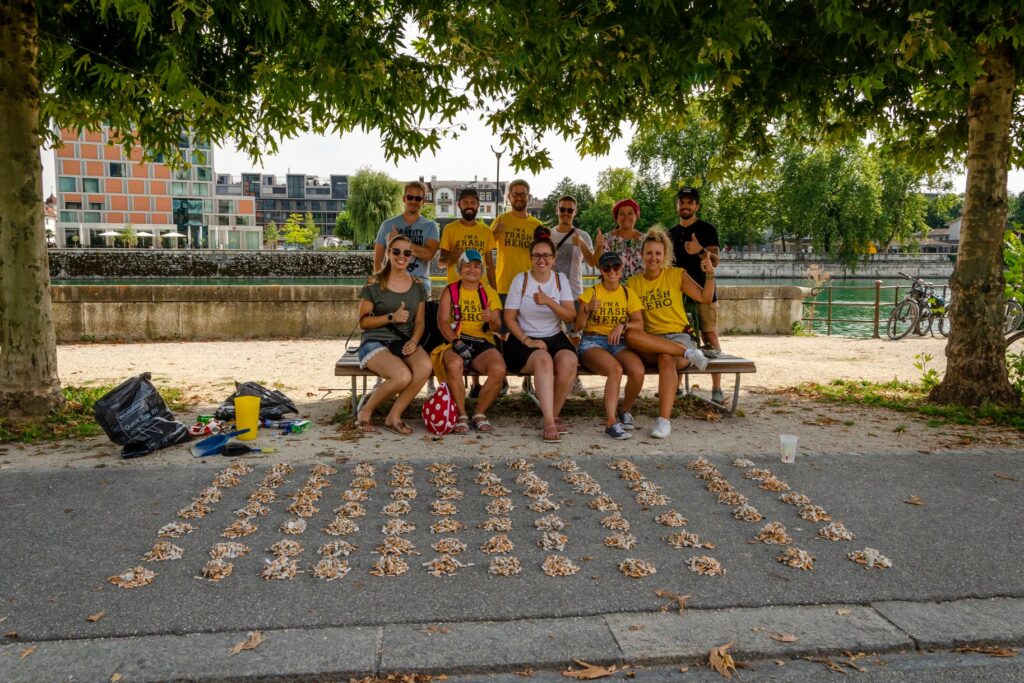
We have been collecting data since December 2013, and as of 30 June 2022:
- We have completed 16,525 cleanups
- We have 159 active chapters in 17 countries
- 438,503 volunteers have joined us, including 111,608 kids
- We have responsibly collected and disposed of 2,207,236 kg of trash
- As part of the Trash Hero Bottle program, 104,688 reusable bottles have been distributed, avoiding 38,211,120 single-use plastic bottles and reducing 1989 tonnes of CO2 emissions
- As part of the Trash Hero Bag program, 29,445 reusable Trash Hero bags have been distributed, saving 10,747,425 single-use plastic bags
Since January 2022, we have welcomed 11 new chapters to Trash Hero; however, this year, we have seen a decrease in the total number of active chapters.
We must recognise the pandemic’s impact on volunteers, not just with Trash Hero but across all charitable organisations. Although Covid-19 restrictions have been lifted in most countries, the impact of the lockdowns and the economic fallout still affect many communities. Many of our volunteers have had to change locations or professions to ensure they can support themselves and their families. This, unfortunately, means they can no longer commit to regular activity – but the door is always open if they feel able to return.
As Trash Hero World, we will continue to support our volunteers in every way possible. We organise regular catch-ups with our chapter leaders and country coordinators and provide mentorship and guidance with every step of the way.
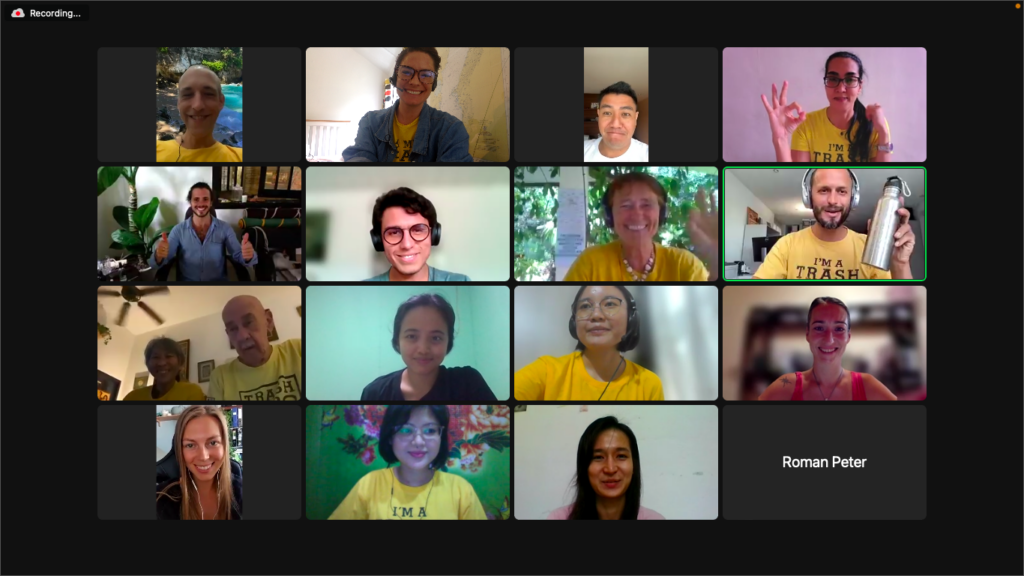
And thanks to this momentum, we continue to see incredible numbers in terms of trash collected and volunteers who have taken part.
How do we get this data?
During every cleanup, our chapter leaders will record data – the number of volunteers in attendance, the weight of the trash collected and how many kids have taken part – which is then published on their social media accounts and uploaded to our database. Anyone can see the live statistics on our website. This data is checked every month to ensure it is consistent and correct.
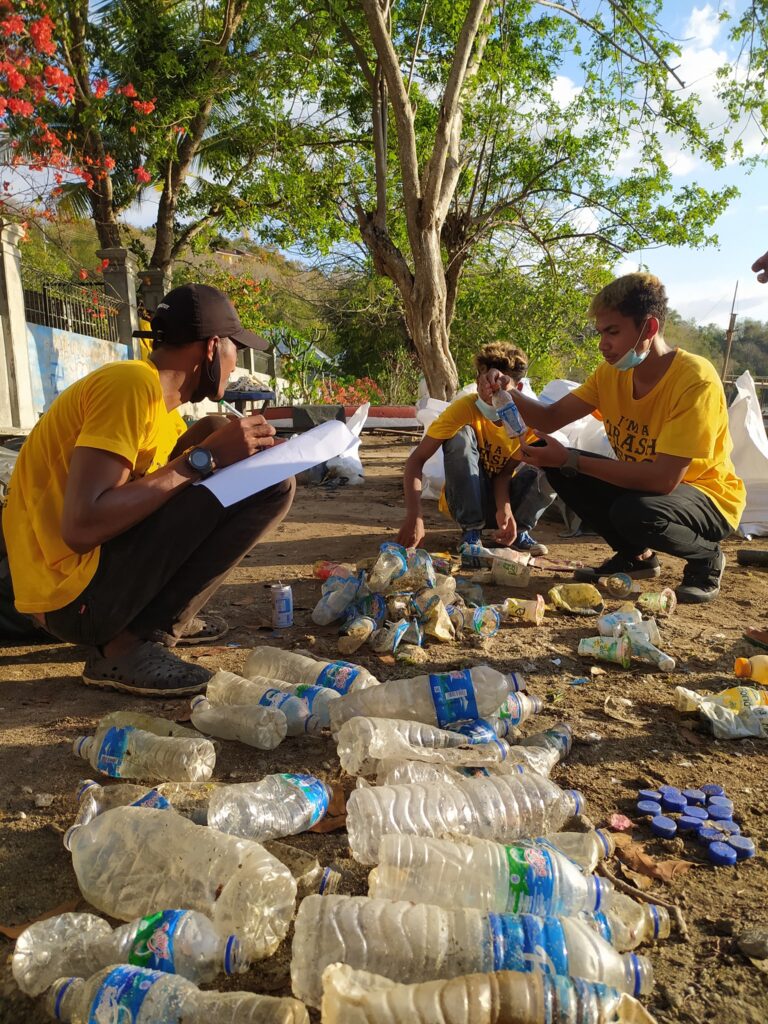
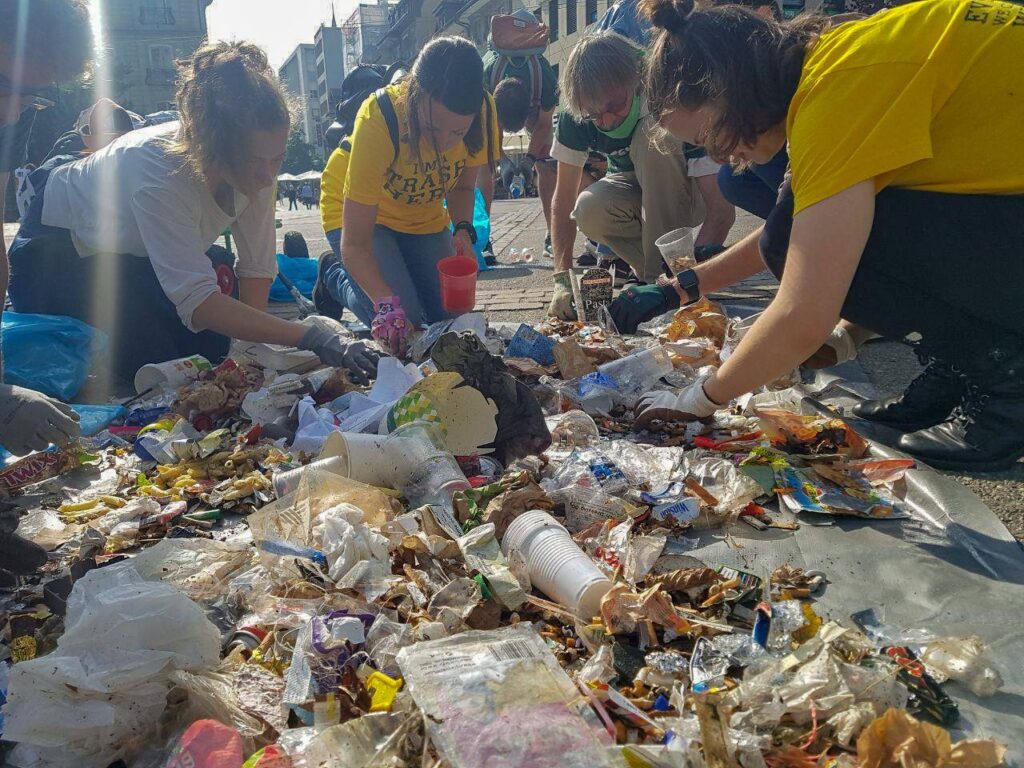
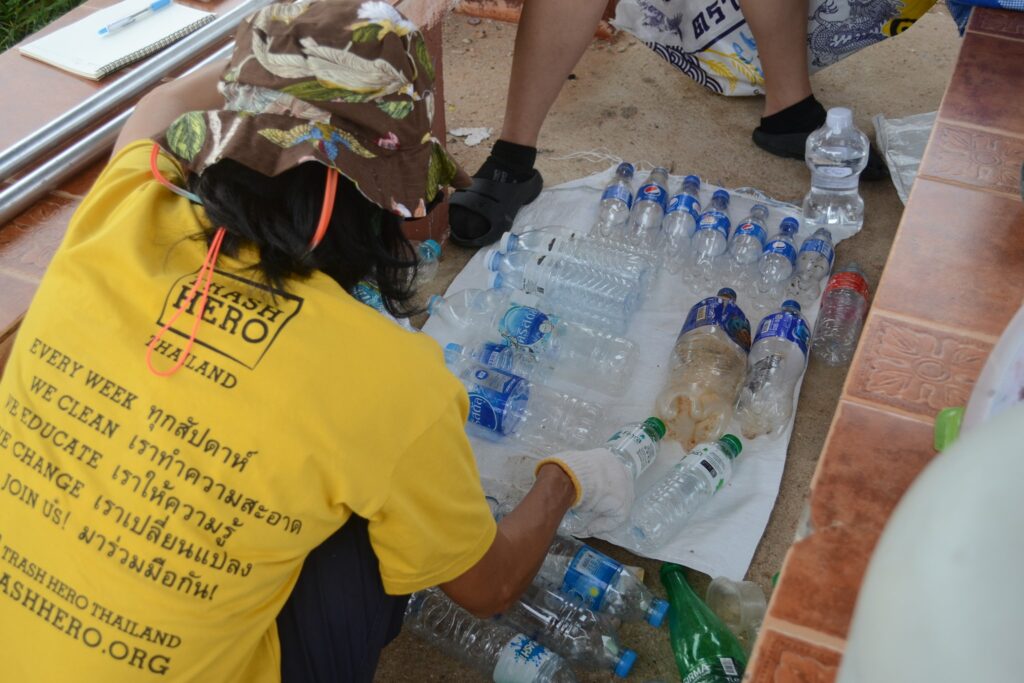
Why do we collect data?
Collecting data helps us assess and celebrate our impact: seeing how much waste we have removed from shorelines, mangroves, cities, and rivers helps to keep us motivated and inspired. But also, this data is essential to share with researchers and our partners. Data equally helps to reinforce our message of reducing plastic at the source, showing people how much waste we produce, how many people want it stopped and how effective refill and reuse solutions can be.
We also share a more detailed analysis of the trash collected with researchers and campaigners so that they can push for change at the global level.
All of our data is publicly available as part of our commitment to being transparent.
All that we have achieved so far has been down to the dedication and commitment of our incredible volunteers. We want to say a huge thank you to them! Organising cleanups and collecting data takes time and energy, and our volunteers’ passion drives our movement.
Check out their work in the video below, and share it with someone you think would enjoy it:
Has this inspired you to join us? Find out more about starting a chapter here or email us.
read more
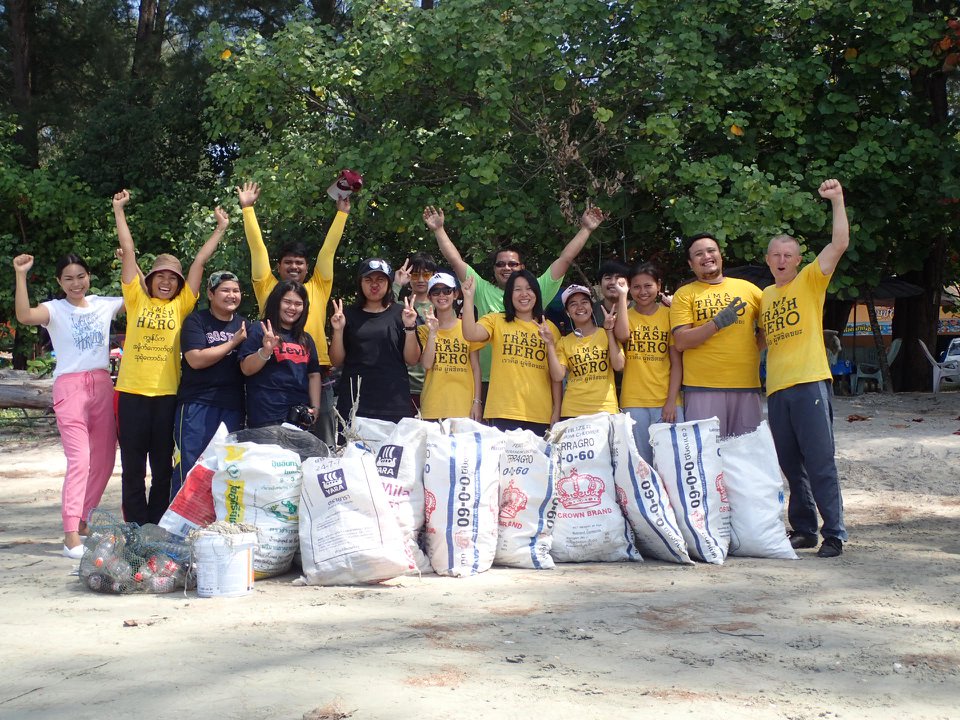
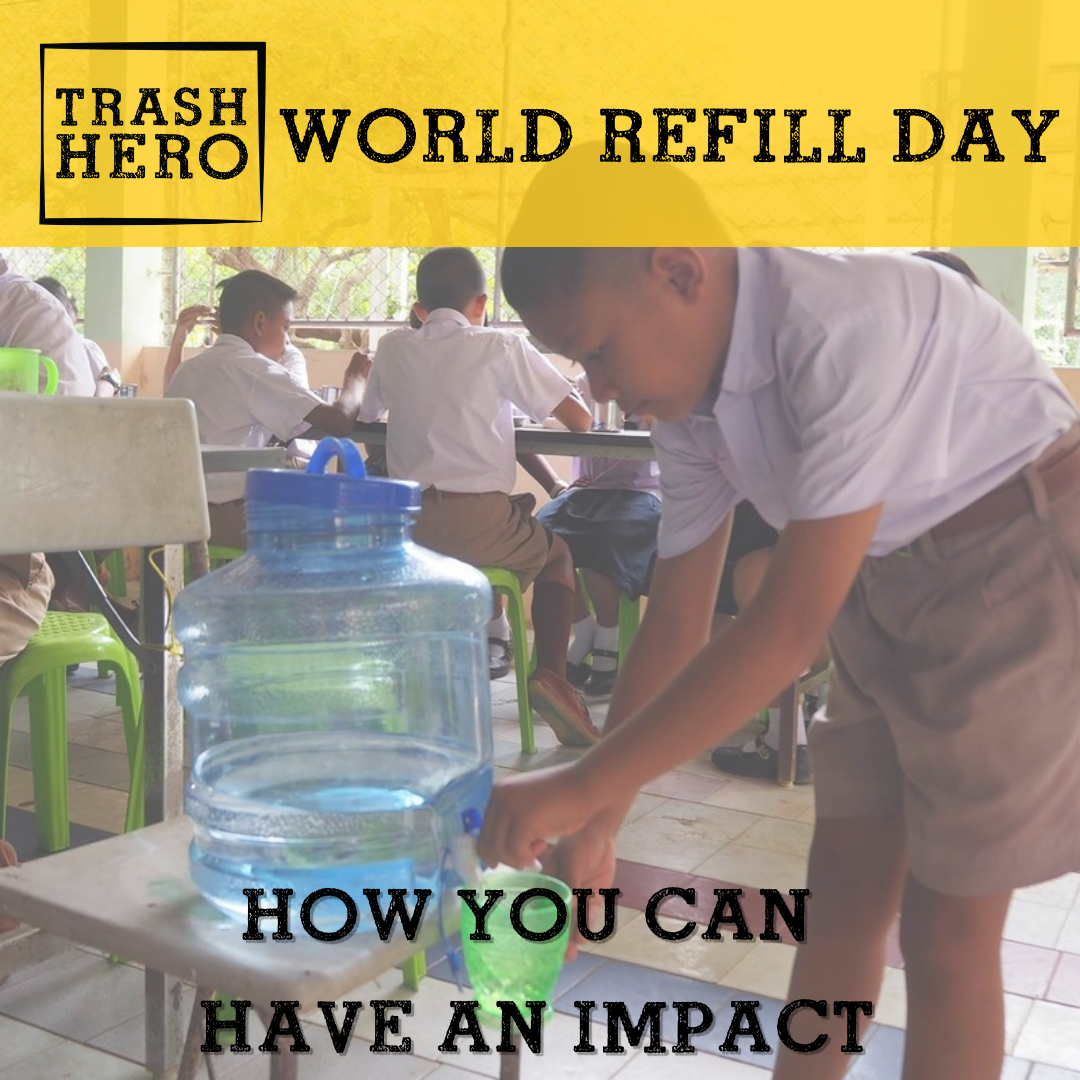
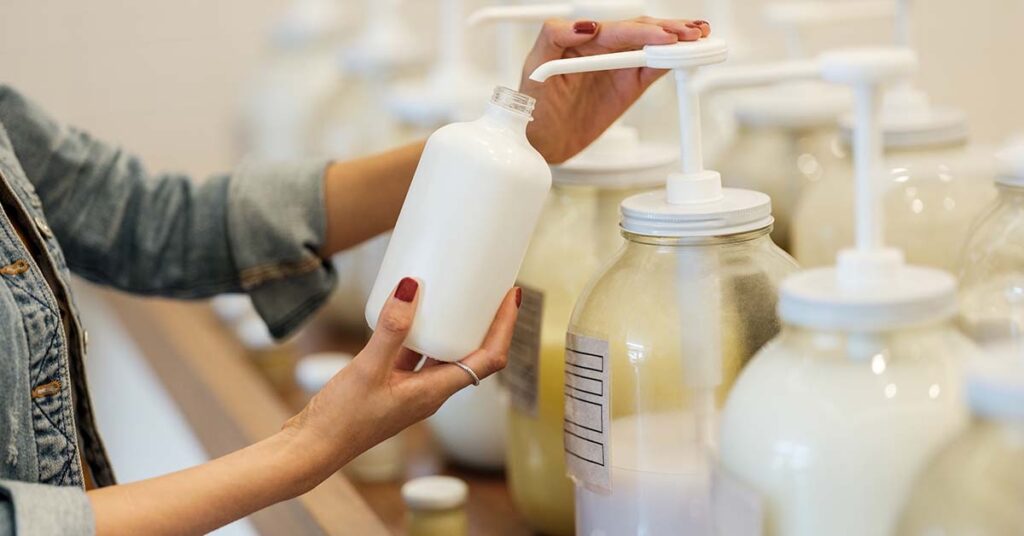
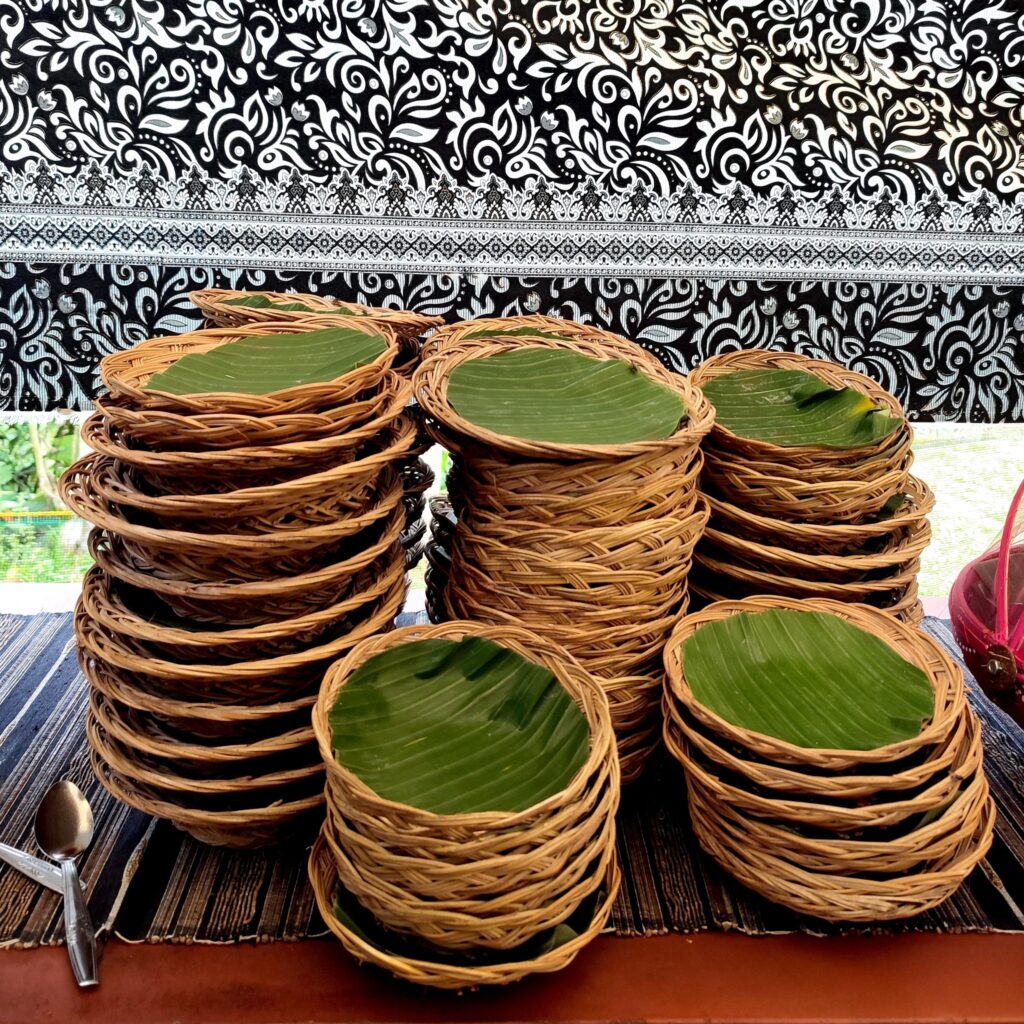
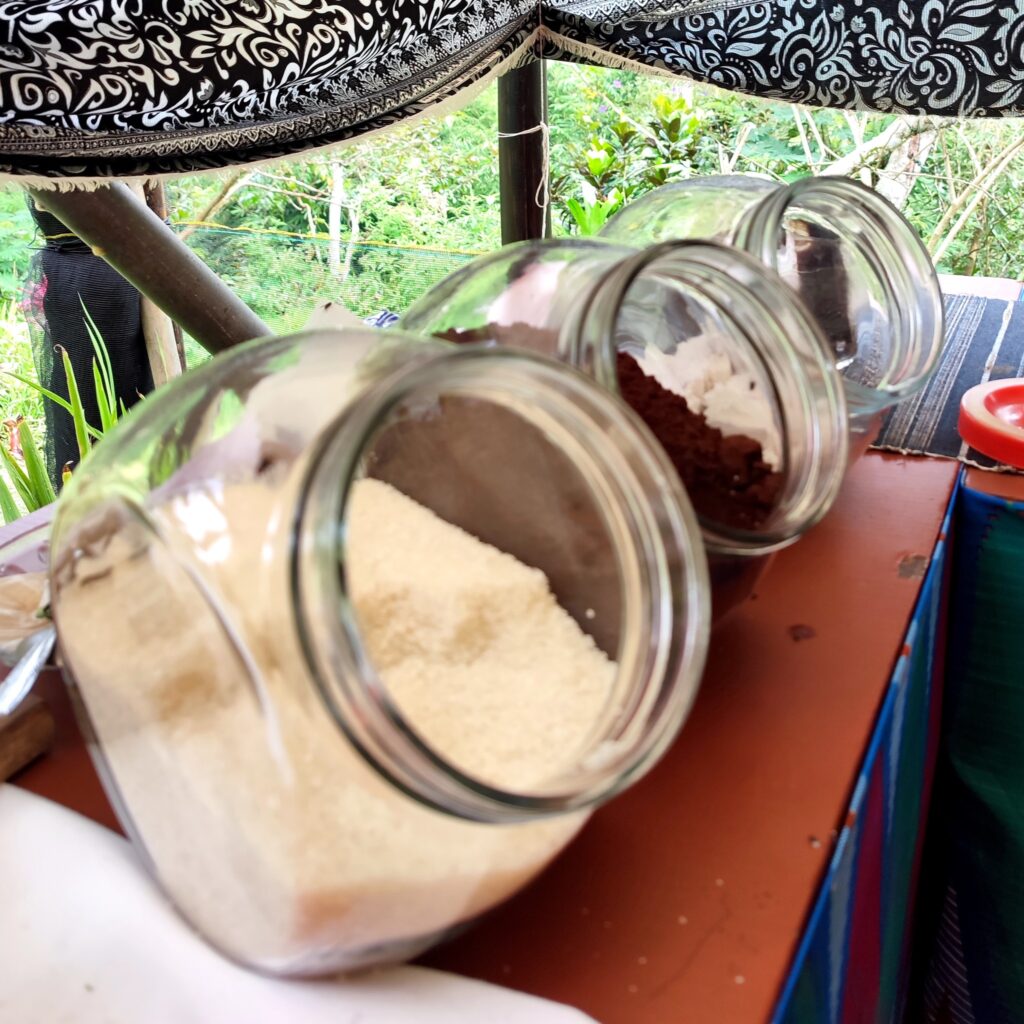
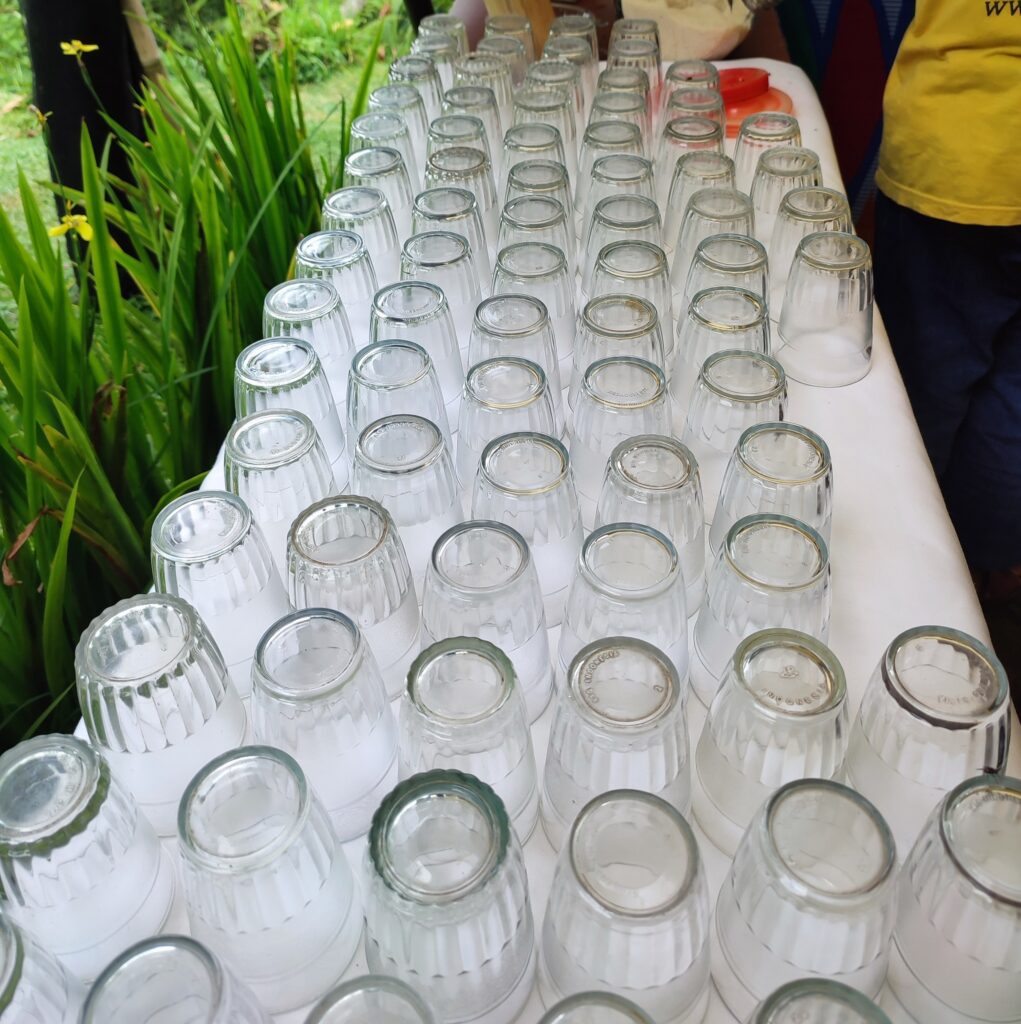
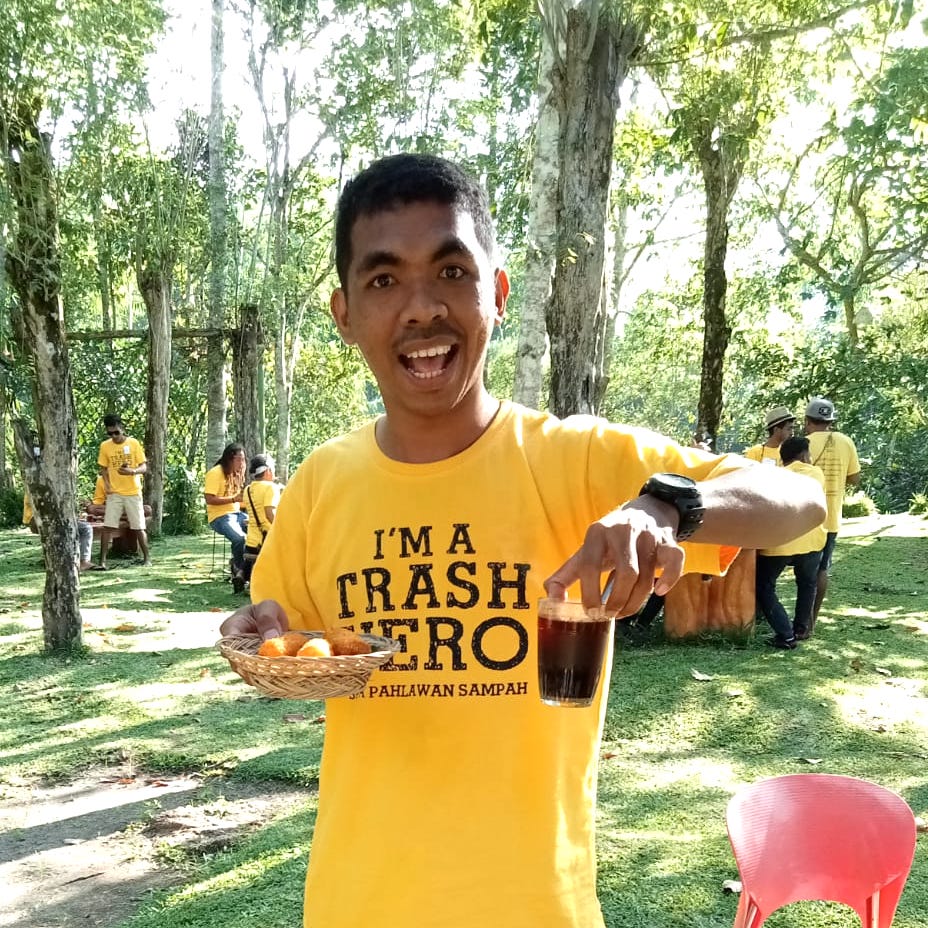
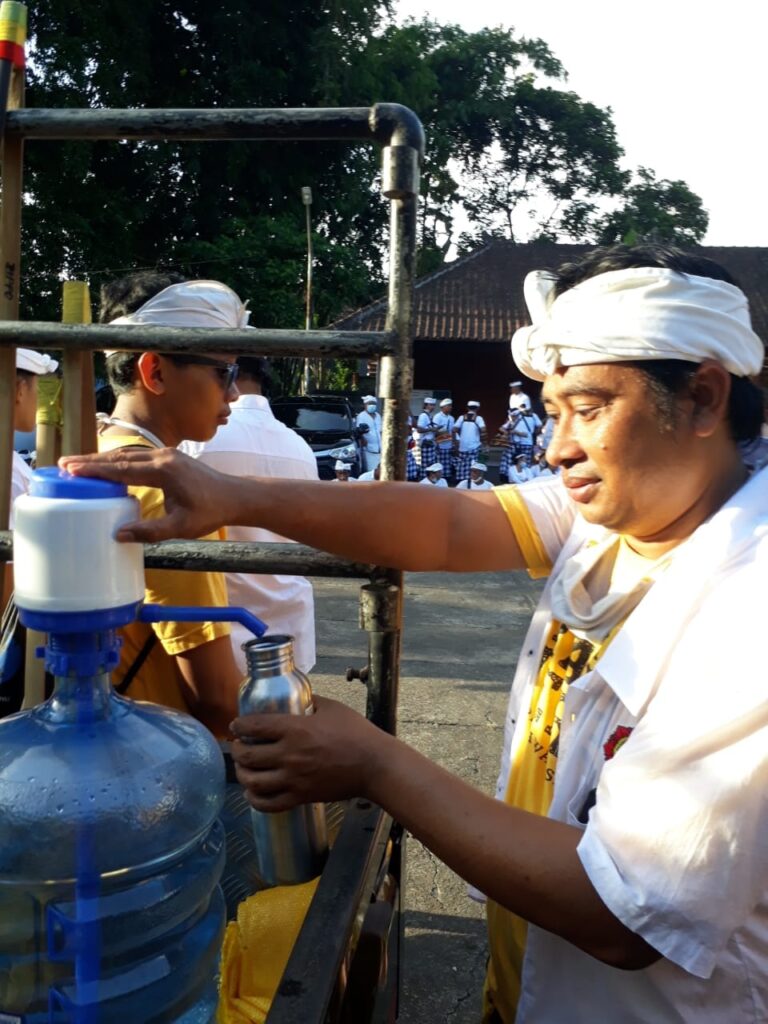
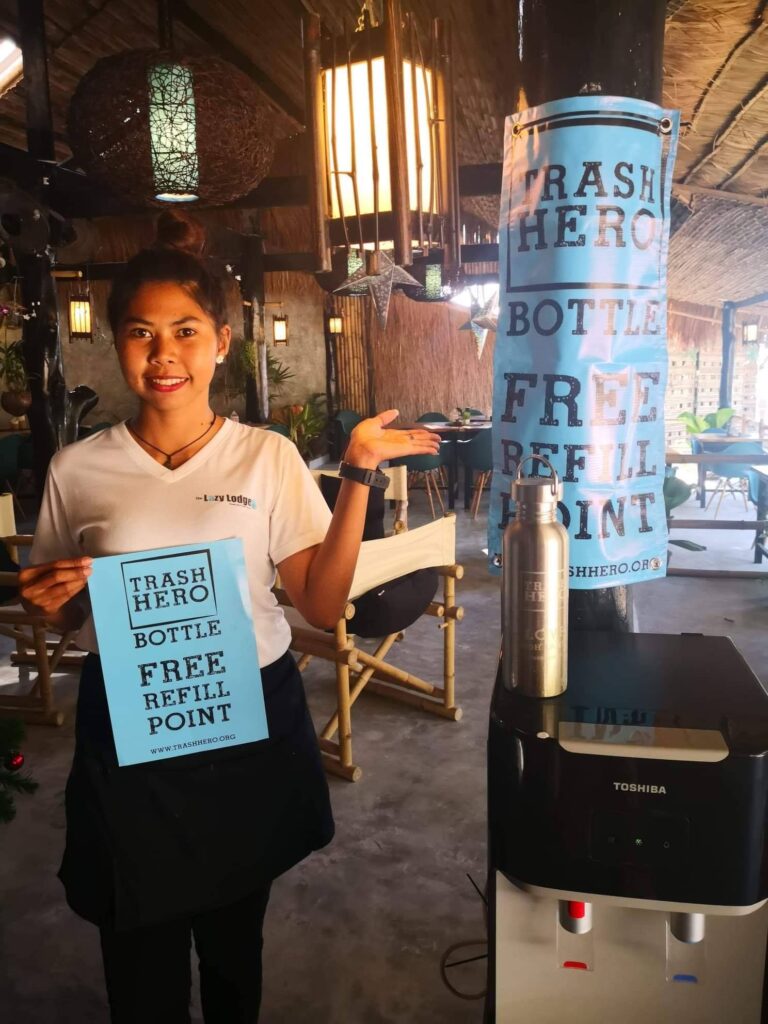
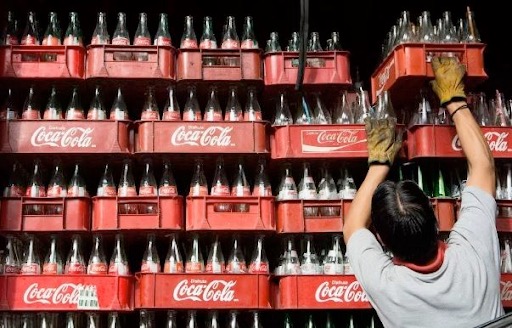


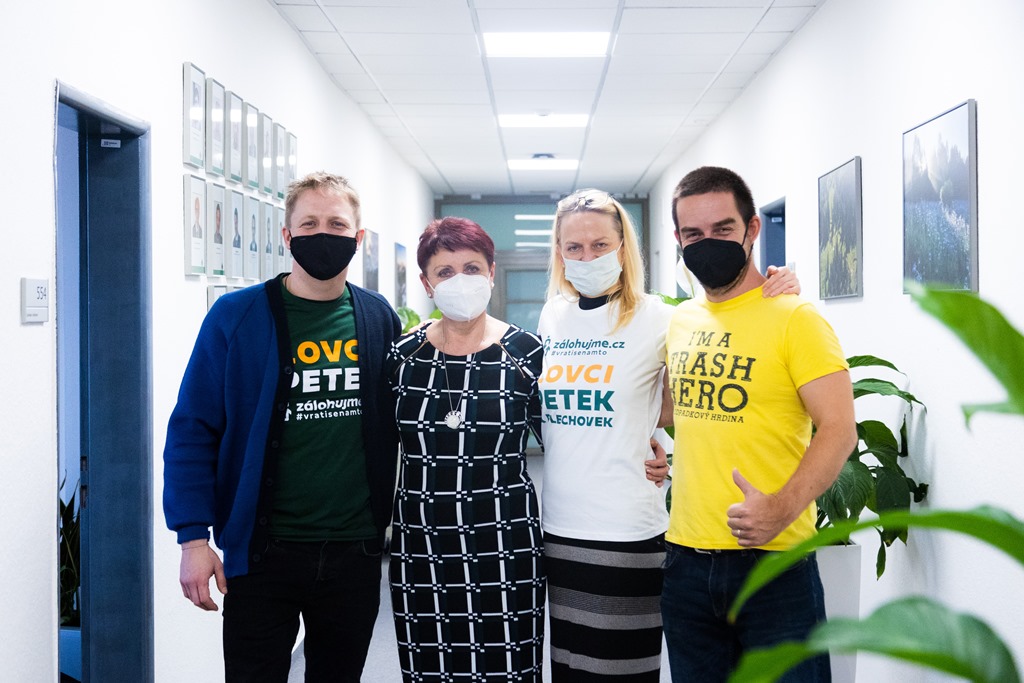
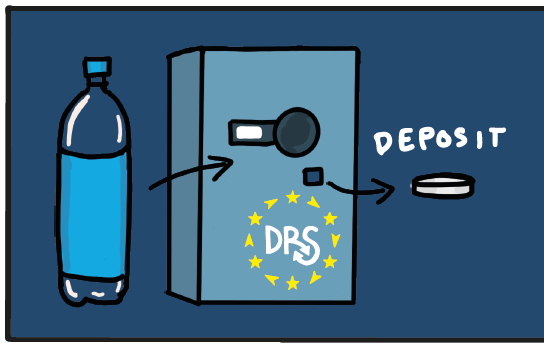
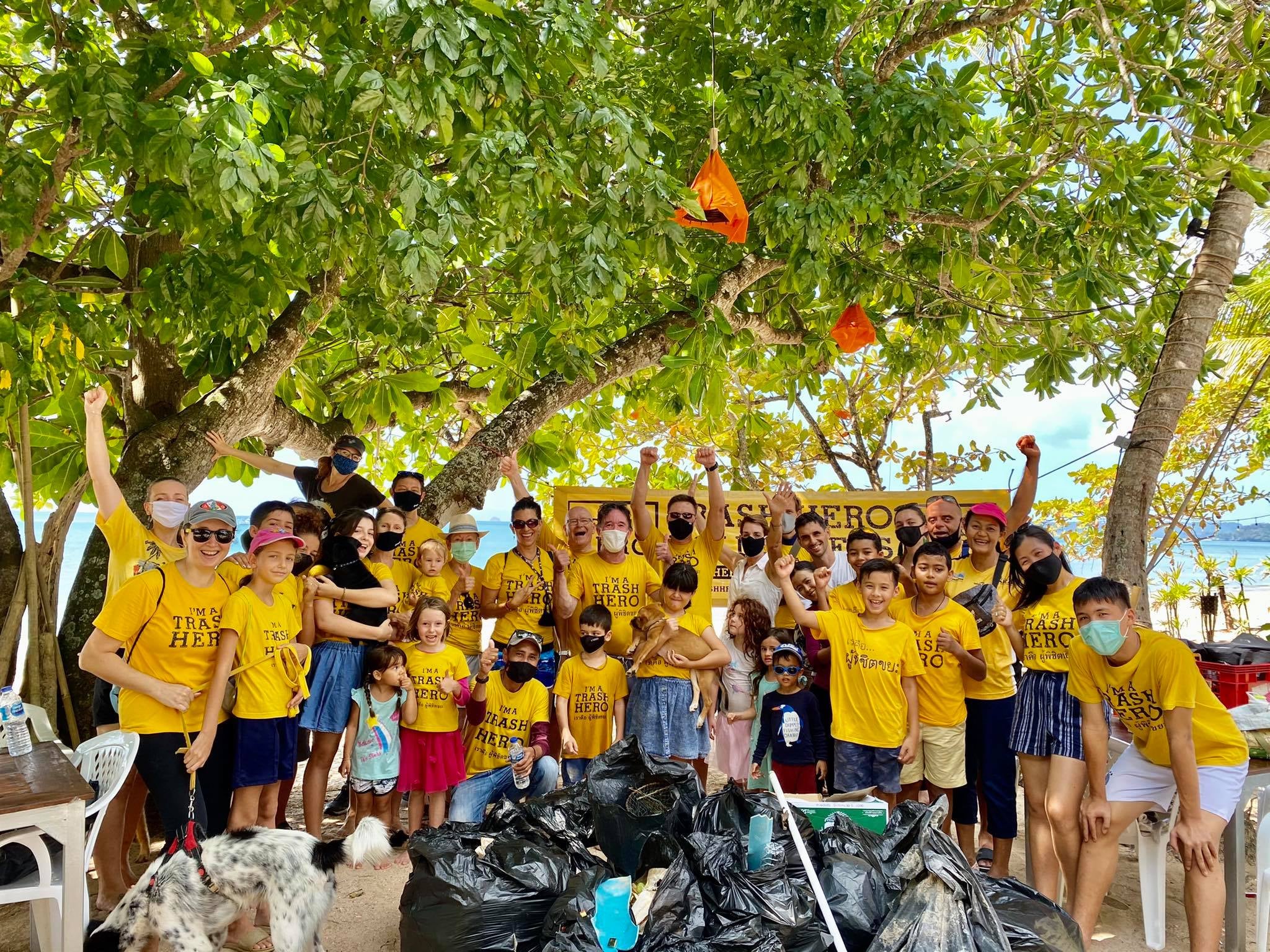
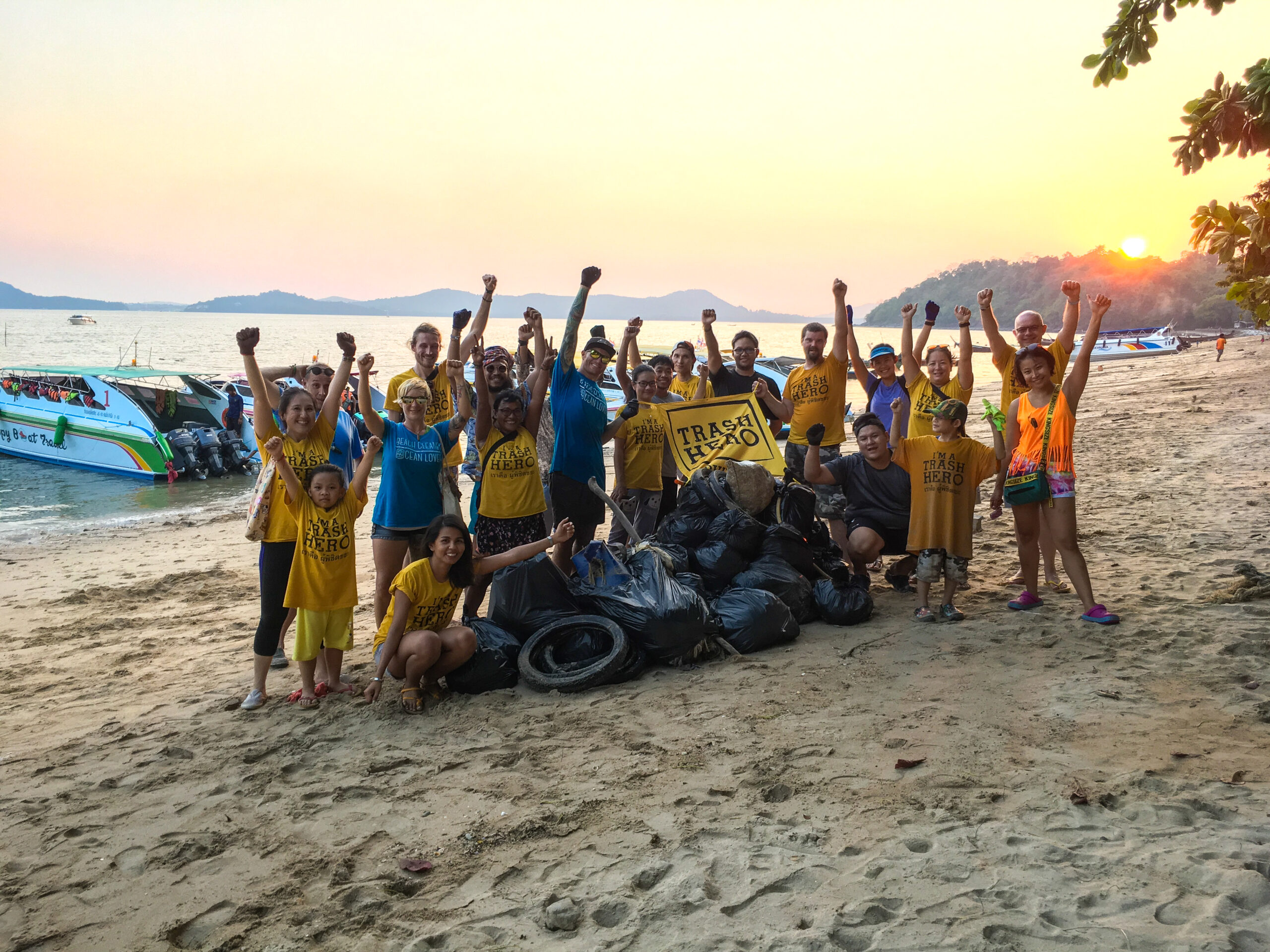
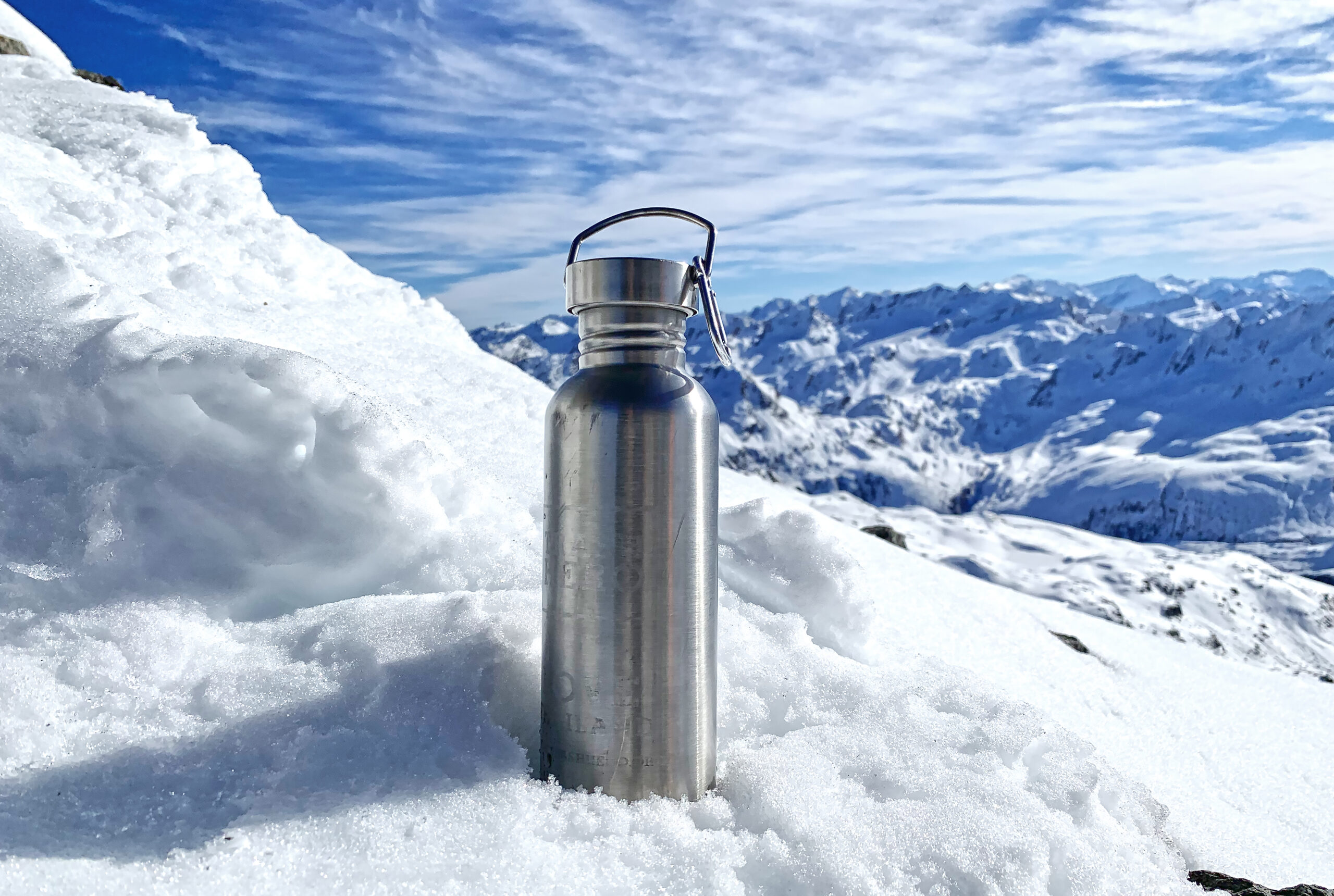
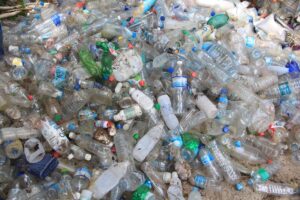 A more likely scenario for ‘end of life’ is that the bottles end up either in landfill, burned openly or in an incinerator to “recover energy”, or discarded on land or in water (the bottles pictured, left, were collected at a single Trash Hero beach cleanup in Koh Lanta, Thailand).
A more likely scenario for ‘end of life’ is that the bottles end up either in landfill, burned openly or in an incinerator to “recover energy”, or discarded on land or in water (the bottles pictured, left, were collected at a single Trash Hero beach cleanup in Koh Lanta, Thailand).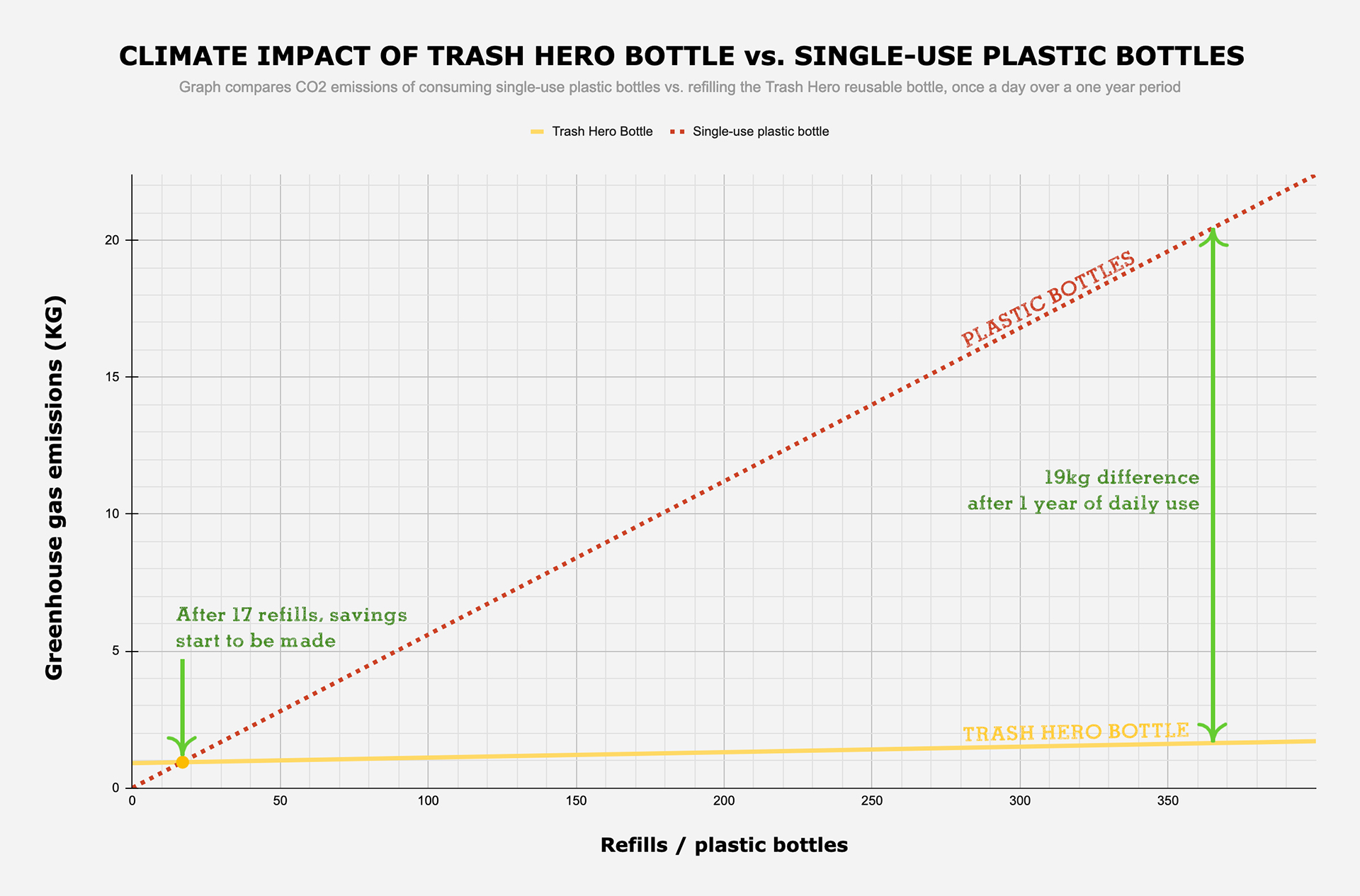
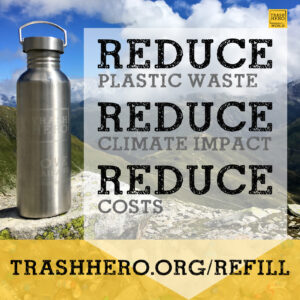
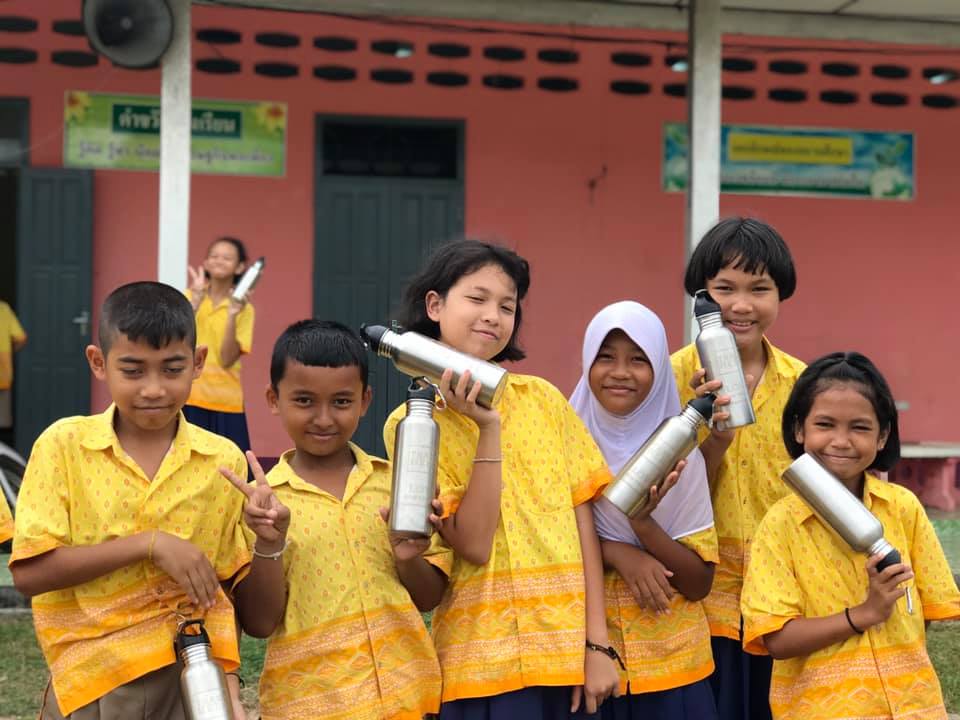
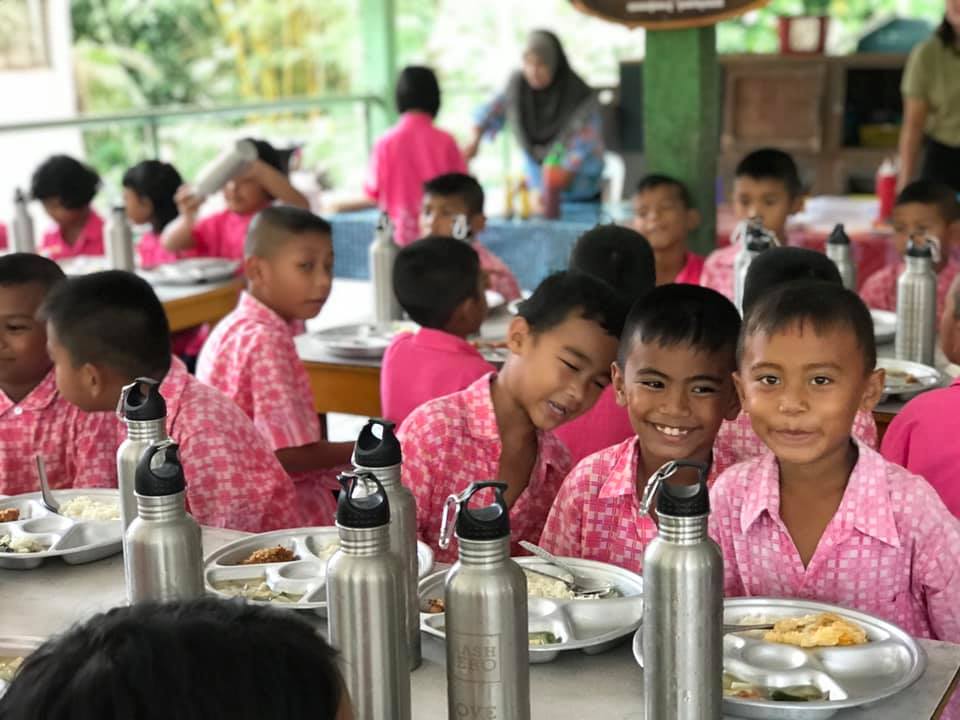 Making the switch from single-use plastics to reusable alternatives is critically important to the global fight against pollution. By teaching kids this importance, Trash Hero is actively working toward a sustainable future – and building the leaders of tomorrow!
Making the switch from single-use plastics to reusable alternatives is critically important to the global fight against pollution. By teaching kids this importance, Trash Hero is actively working toward a sustainable future – and building the leaders of tomorrow!